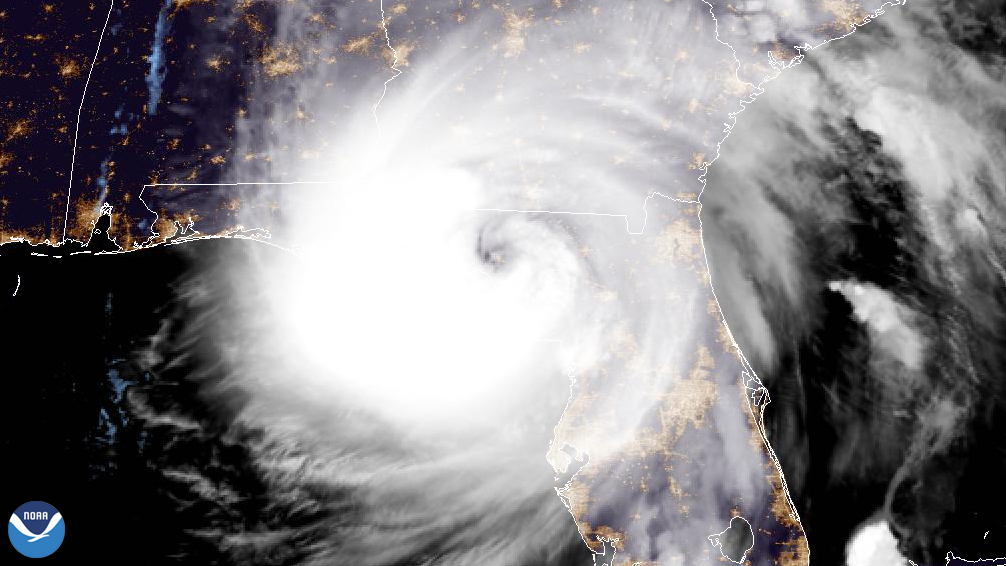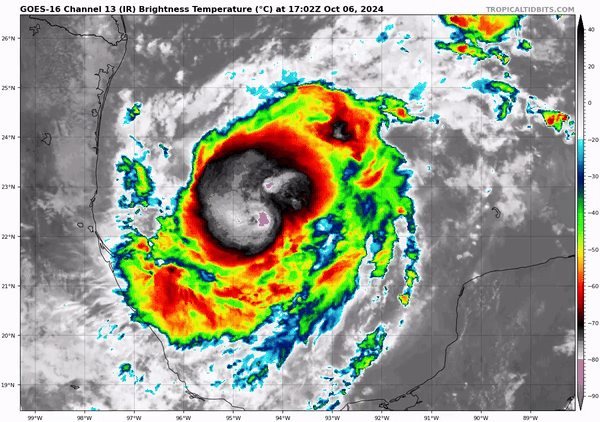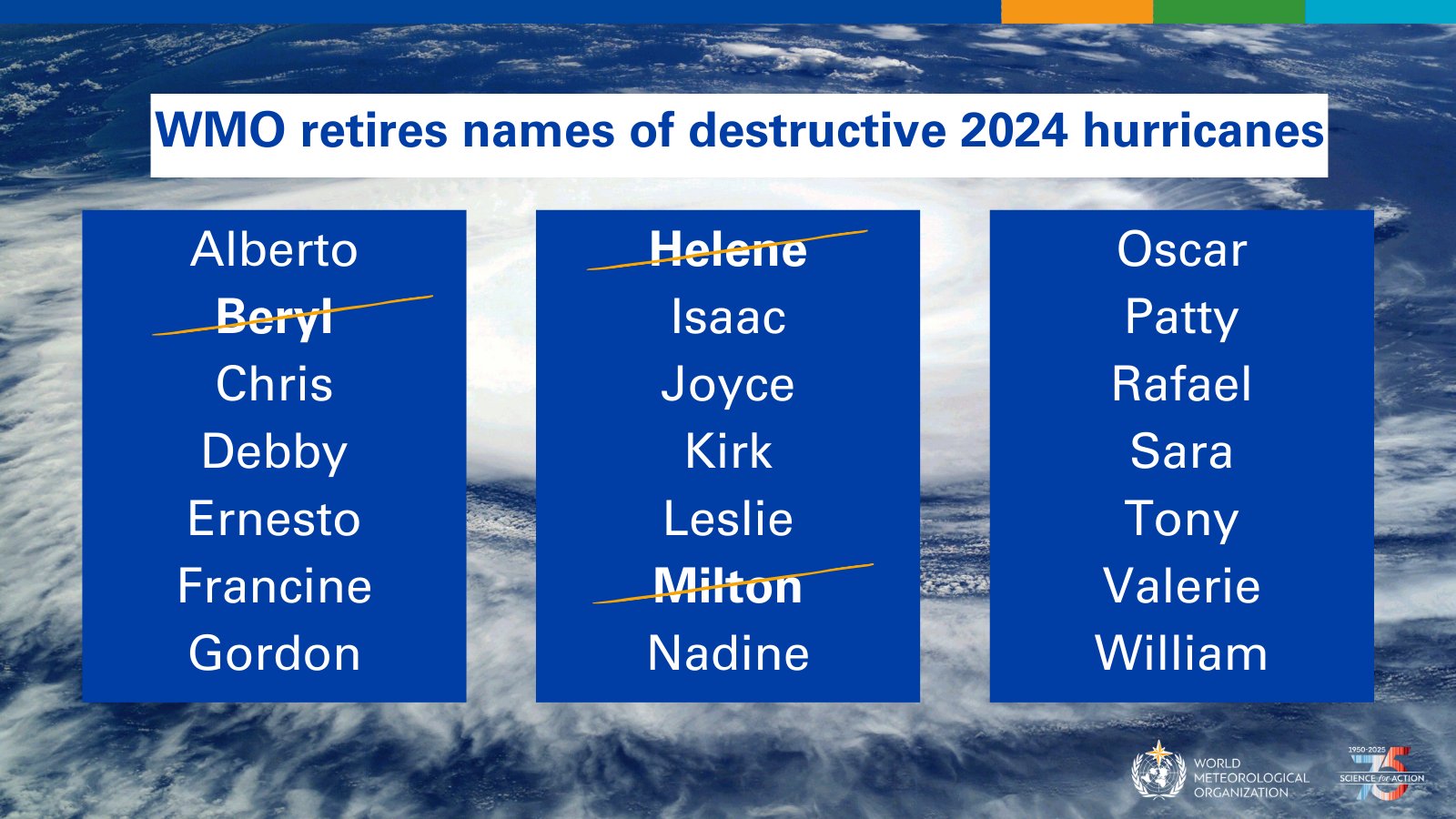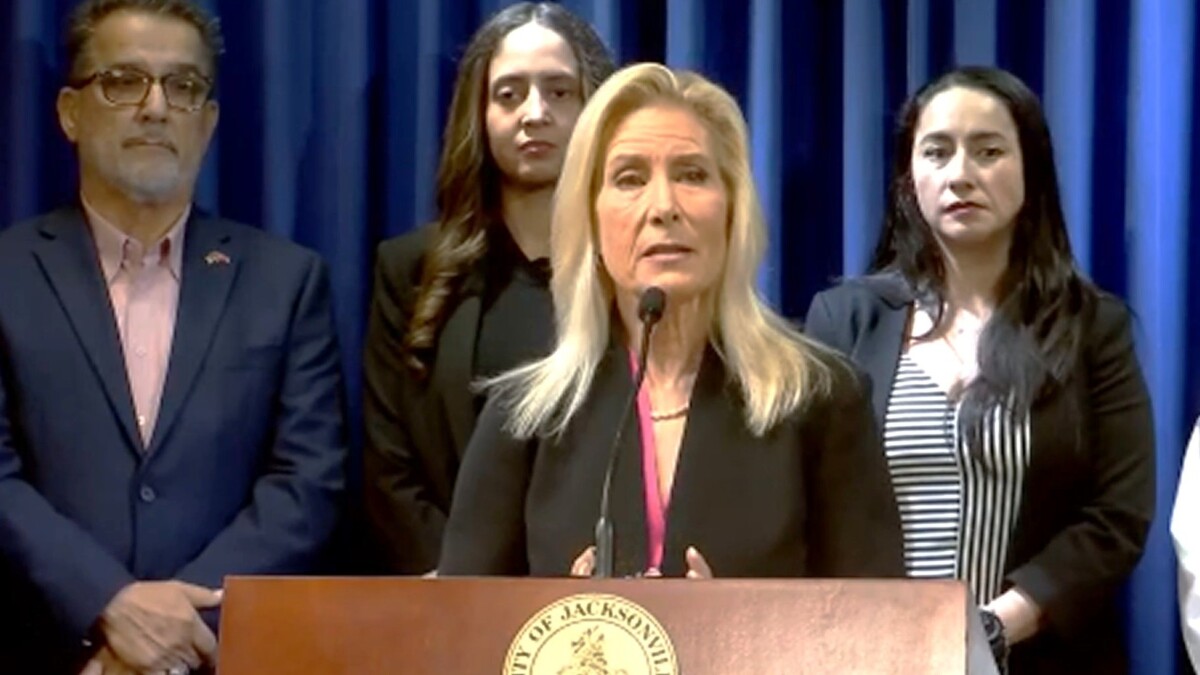The 2024 hurricane season was another record-breaking one. The World Meteorological Organization‘s Hurricane Committee has retired three names from the Atlantic Basin list.
Brianna, Holly, and Miguel will replace Beryl, Helene, and Milton on the 2030 name list. A hurricane name is retired after the storm causes many deaths and or significant damage.
Last year’s Atlantic hurricane season had 18 named storms, 11 of which became hurricanes and five of which became major hurricanes. Eight hurricanes made landfall, five of which struck the United States.
Hurricane Beryl
Hurricane Beryl was the earliest Category 5 hurricane in the Atlantic Basin. It brought significant storm surge along Texas and Louisiana and made landfall in Matagorda, Texas, as a Category 1 storm. But Beryl was felt all along the Caribbean as the intense Category 5 hurricane moved west over the Caribbean Sea.

Hurricane Helene
Hurricane Helene landed as a Category 4 hurricane on Florida’s Gulf Coast on Sept. 26. It was the first Category 5 hurricane to land in Apalachee Bay, bringing in 15 feet or more of storm surge and maximum sustained winds of at least 120 mph.
There was widespread damage from the Gulf Coast through North Carolina. The remnants of Hurricane Helene interacted with a trough that brought torrential rains along the Appalachians.
Hurricane Helene became the deadliest hurricane on record since Katrina in 2005, causing 248 fatalities, the majority occurring in the Carolinas. Helene was the seventh costliest U.S. hurricane, with damage estimated at $78.7 billion.

Hurricane Milton
Hurricane Milton also made landfall in Florida’s West Coast. Milton was a category three hurricane on Oct. 9, landing in Siesta Key, the popular beachgoer spot. Its rapid intensification made Milton dangerous, one of the highest ever observed.
Luckily, it peaked with this strength over the Gulf of Mexico. Nonetheless, Florida booked another major hurricane hitting its West Coast directly.
Milton produced prolific tornadoes along the Peninsula. Tornado and wind damage were reported in South and Central Florida. Twelve people died in the U.S. and 15 total. Damages were estimated at $38.3 million.
Names retired
Since 1954, there have been only 19 seasons without a named retiree. The most recent year was 2014, with no names retired.
fourteen ‘I’ names have been retired, the most of any other letter. In total, 100 names have been retired in Atlantic history. The hurricane name lists are reused every six years.
You will no longer see Greek letters if we use all the names on the list in a season. The National Hurricane Center, along with the World Meteorological Organization, which handles the adding and retiring of names, has a supplemental list of names that will kick in any year all names are used.
This supplemental list of names will be used every year. If one name is retired from the list due to the storm being catastrophic and costly and meeting the retirement criteria, it would be replaced like any other storm retired from the rotating lists.
Even-numbered years start with male names, while uneven years start with female names. It wasn’t always like this.
Before satellites existed, storms usually received their names depending on the regions they affected, saints, or holidays. The names were usually given after the event. In 1953, storms started getting official names, only female names.
By 1979, the lists were updated, alternating male names were added, and the six lists of names were officially implemented.
Copyright 2025 Storm Center






